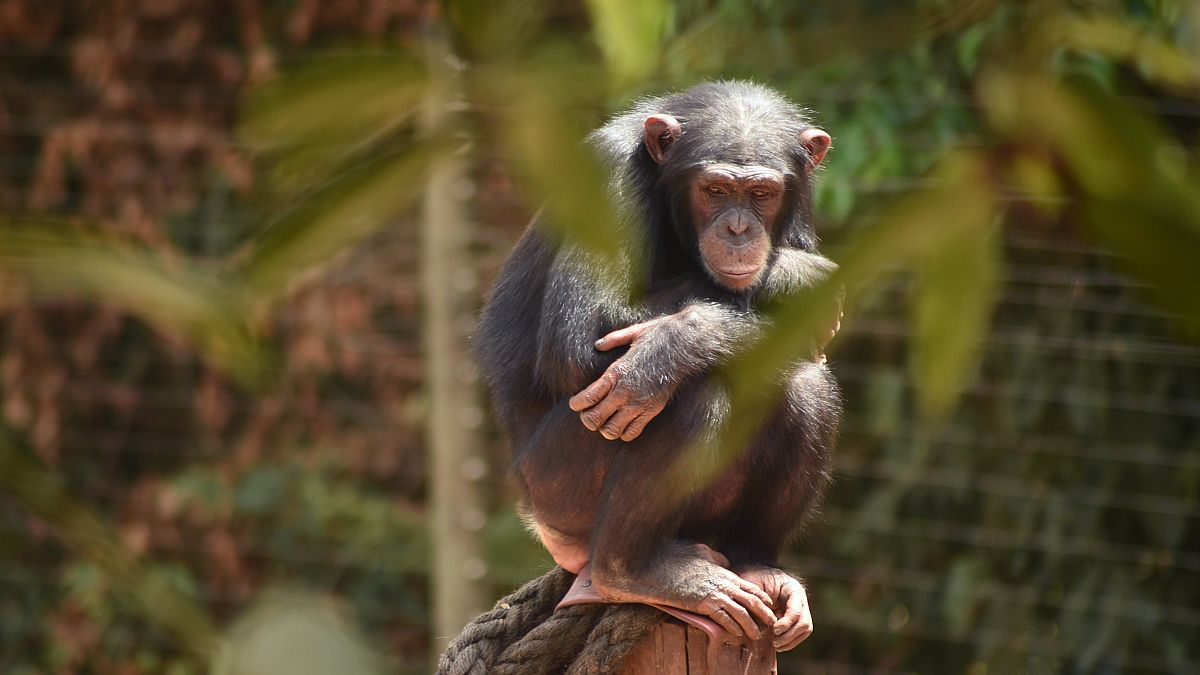In a week that saw bitter Brexit battles and more climate protests, we spoke to Primatologist Jane Goodall about the links between chimpanzees and humans, and her views on the future for planet earth.
A lot of strange things are happening these days for which we're scrambling to find explanations – like climate change, Brexit or Trump's border wall.
We usually talk to political analysts to find answers, but today we want to hear from a famous primatologist – that's basically someone who studies apes and monkeys.
In other words, our ancestors. What can we learn from them?
Shona Murray talked to the legendary Jane Godall who will turn 85 next Wednesday.
On hope for the future and conservation efforts, she said:
What else happened in Europe?
Week in Numbers
348 is the number of MEPs who voted in favour of the controversial copyright rules. 274 voted against and 36 abstained.
The contentious Article 11 and Article 13, have been criticised amid fears they might curtail freedom of information online.
The rules must now be formally approved by the Council, Expected 9 April
2022 - that is the year that MEPs have agreed on to have new safety features fitted in all new cars to make vehicles and roads safer.
Features such as intelligent speed assistance and advanced emergency-braking system will have to be installed in new vehicles.
In 2017, 25.000 people died on EU roads and 135.000 were seriously injured.
2,500 is the number of litres of water per day the Mannekin Pis was found to be wasting.
The statue of the little boy who symbolises the spirit of the people of Brussels, will no longer waste drinking water, after city engineers intervened.
From now on, Manneken Pis will pee water that will be recirculated.
Your Voice, Your Choice - European Elections explained - The Issues
Here in Brussels, everybody talks about the upcoming European elections – or at least thinks about them.
Out there in the member states, polls suggest that many more people consider the vote important than did five years ago.
And people care about the issues.
What are the issues? Well, that depends on the country.
The issue that concerns most Europeans and should be treated as priority during the European elections campaign are immigration (50%),
The economy and youth unemployment (47%), terrorism (44%) and climate change (40%).
But preferences change according to nationality.
Take immigration. These are the countries (basically, those that are at the gate and those experiencing difficulties with solidarity):
Malta, Italy, Hungary, the Czech Republic, Austria, Germany and Estonia.
Economy and growth worries basically in the countries that suffered more from the crisis, but not only
Greece, Ireland, Spain, Portugal, Italy, Cyprus, Croatia, Poland, Romania, Bulgaria, Slovenia, Slovakia, Latvia, Latvia and Sweden.
Some of those countries put emphasis also on youth unemployment:
France, Spain, Portugal, Italy, Cyprus, Croatia, Luxembourg and Slovakia.
Terrorism is no longer the main worry (it was on previous European elections), but it is still an issue in Belgium and France.
And even if climate change worries more and more people, it is only the main priority in the Netherlands, Denmark and Luxembourg.
Finland is finally concerned about security and defense policy.
Week ahead
And here's a look at some top events next week:
On Monday, the Hannover Trade Fair kicks of in that northern German city, the largest event of its kind in the world.
All key technologies and core areas of industry will be present.
On Tuesday, Greek Prime Minister Alexis Tsipras travels to Skopje, the capital of neighboring North Macedonia.
It's the first trip since the name change of that country and the first trip of a head of government from Athens since that country's independence from Yugoslavia in 1991.
And finally: NATO foreign affairs ministers come together in Washington on Wednesday and Thursday.
It's the 70th anniversary celebration of the alliance, and Secretary General Jens Stoltenberg will address both houses of the U.S. Congress.
Last Word
The last word goes to German MEP Jens Geier who let the world know what he thinks about Brexit:
Q: Do you think Theresa May should resign?
A: Frankly I couldn't care less.
Q: Why not?
A: Well, the British people have to make up their mind, and I'm really tired of thinking about what should help and what not, sorry.
Q: Are you bored of Brexit?
A: Bored to death.
